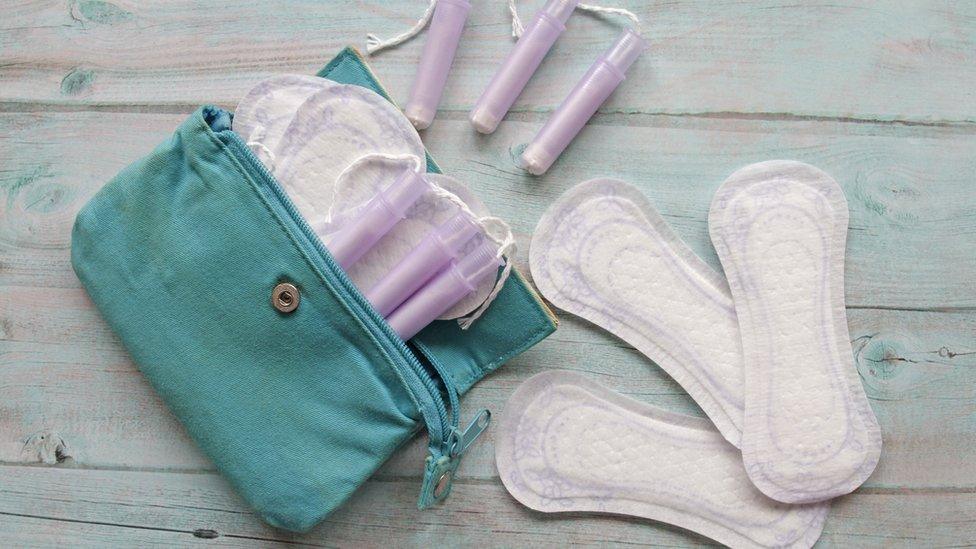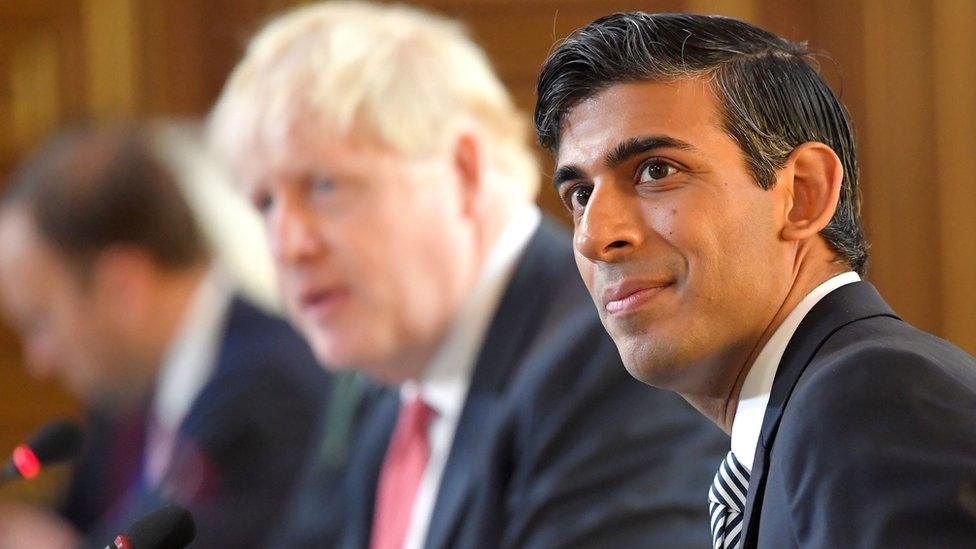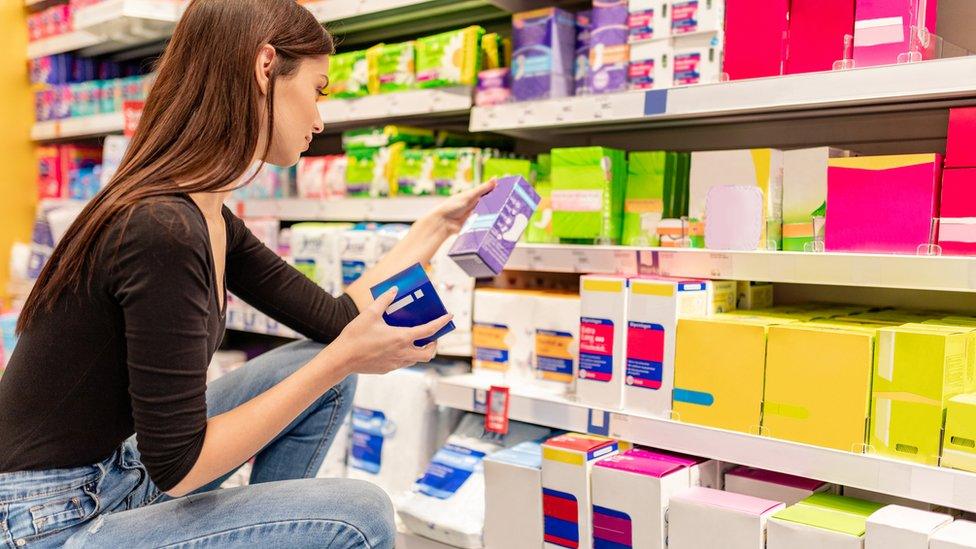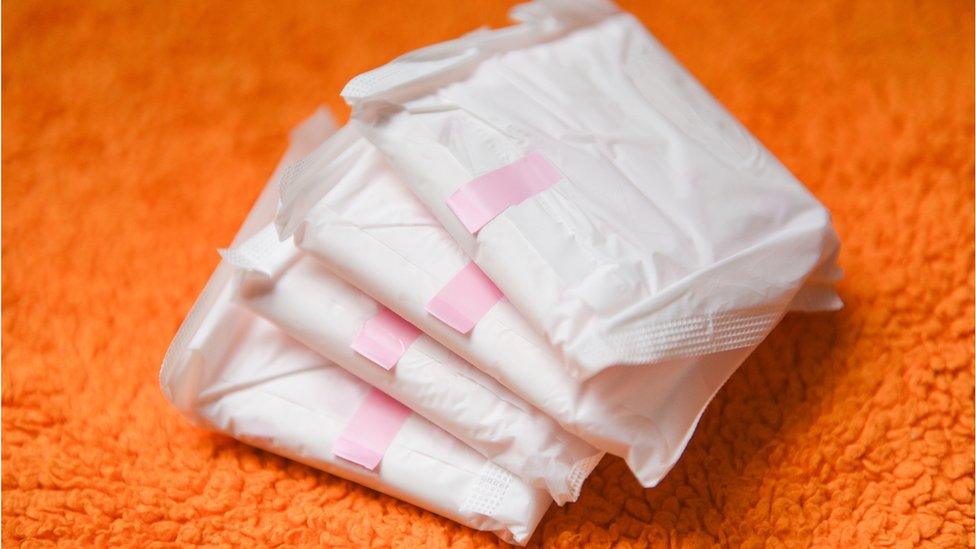Controversial 'tampon tax' scrapped in the UK
- Published

The end of the "tampon tax" means period products will be cheaper in the UK
The Chancellor Rishi Sunak has said the tax applied to sanitary products, nicknamed the "tampon tax", has been abolished.
Women's rights campaigners have been fighting for years to put an end to the tax, and it means sanitary towels and tampons will now be cheaper in the UK.
It was a controversial law because the VAT (value-added tax) that was applied to the sanitary items meant they were classed as "luxury items" - a rule that was called 'sexist' by many people.

Rishi Sunak said he was proud to be abolishing the controversial tax on sanitary products.
Rishi Sunak, the government minister in charge of the country's finances, said: "I'm proud that we are today delivering on our promise to scrap the tampon tax. Sanitary products are essential so it's right that we do not charge VAT."
Pads and tampons are provided free of charge to all in Scotland, and free in schools, colleges and hospitals in the rest of the UK.
The UK is able to get rid of the tax now because it is no longer subject to European Union rules on sanitary products due to Brexit.

Sanitary products are sometimes unaffordable for young women.
Campaigner Felicia Willow said: "We warmly welcome the scrapping of VAT on all sanitary products and congratulate the Government on taking this positive step."
This will be seen as a big step forward for many people who want to put an end period poverty in the UK.
What is period poverty?
Campaigners say that girls who can't afford sanitary products are embarrassed to talk about it and it can lead to them missing lessons.
The Girl Guides have been raising the issue of period poverty for several years and say their research suggests that one in three 11 to 21-year-old girls and young women have missed school or college because of their period.
We spoke to kids in Cambridge about period stigma.
How much will sanitary products costs now?
On average, people buying tampons will save around 7p on a pack of 20 and 5p on 12 pads.
It is estimated that the average woman spends £4,800 on period products during her lifetime.
- Published1 July 2020

- Published28 May 2019

